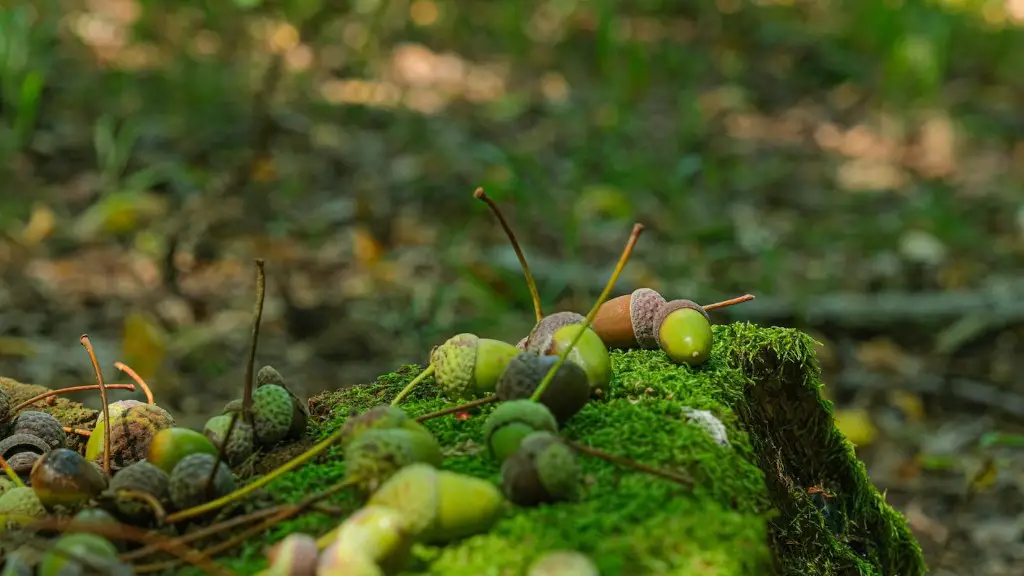Rats are a common problem for gardeners, especially those with a fruitful lemon tree that produces tasty lemons. Fortunately, there are several measures one can take in order to discourage rats from eating your lemon tree.
Firstly, it’s important to remove any existing rat problems by using traps or rat poison in order to prevent rats from coming back. Secondly, it’s important to check for possible entry points and seal them off, like cracks in the walls of the house where rats may be coming in. Thirdly, it’s important to remove any uneaten fruit or any other food source that the rats may find attractive, as they are known to be scavengers. Fourthly, make sure to keep the area around the lemon tree free of clutter and remove any nearby bird feeders that can also attract rodents.
Fifthly, place rat traps around the tree in order to catch any that may be trying to get close, as they are known to be attracted by sweet smells. Be sure to check the traps regularly and once a rat has been caught, reset the trap before disposing of the carcass. Sixthly, it’s important to provide an alternative food source, such as sunflower seeds, for any rats so that they won’t have to rely on your lemon tree. Lastly, it’s important to keep the grass around the tree well-trimmed and to discourage any other animal behaviour that may attract rats or mice to the area.
Identifying Rats
Identifying a rat problem is the first step in preventing rats from eating your lemon tree. Rats are usually active at night, so they can be difficult to spot in daylight hours. It is recommended to inspect your tree during the night, as this is when they are most active and you are most likely to spot any evidence of their presence. Check for rat droppings around the tree, or gnawed on parts of the tree, which is a sure sign of rat infestation.
You should also be aware of different types of rat, as some can cause more harm than others. The two most common types of rat in the UK are the brown rat and the black rat, both of which can cause damage to gardens and fruit trees. The brown rat is usually big-bodied and heavy, while the black rat is smaller and lighter. Look out for the tell-tale signs that differentiate these two types of rat, and make sure to take action quickly if you see any of them around your lemon tree.
If you see any evidence of rodent activity or notice any damage, it’s a good idea to speak to a pest control expert who can advise on the best course of action. In the meantime, there are a few steps you can take to help protect your lemon tree from these unwelcome visitors, such as trimming back overhanging branches and clearing away any hiding spots.
Protective Measures
Protective measures are another important way of keeping rats away from your lemon tree. An effective way of deterring rats is to place mothballs around the tree’s base. Mothballs give off a repugnant scent that rats don’t like, so they are more likely to stay away.
Another option is to place a fence around the tree, which is also a good way to keep any other animals away. It should be strong enough to be able to keep rats out, but not too strong as to be unattractive. The most effective fences are usually metal meshes that are at least 6-7 feet high.
Chemical repellents are also a good way of keeping rats away from your lemon tree. These can be sprayed around the perimeter of the tree, or even around the base, to make it less attractive to rodents. However, chemical repellants should be used with caution as they can also have an adverse effect on your plant and any neighbouring wildlife.
If you live in an area where rats are a frequent problem, it may be worth investing in an ultrasonic repeller. These devices emit noises that tend to deter rodents, and can help to create an environment that is less attractive to them.
Natural Solutions
There are also a number of natural methods that can be used to keep rats away from your lemon tree. A particularly effective one is to spread a thin layer of black pepper around the base of the tree. Rats don’t like the smell of black pepper, and will usually avoid anything that gives off this scent.
Other natural deterrents include spreading ground cloves, garlic, or citrus peels around the tree; these all have strong odours that can make it unpleasant for rats to be around. One popular natural deterrent is to set up a scarecrow, which can be placed around the tree and will deter any approaching rats.
These methods can all be used to help keep rats away from your lemon tree and will help to keep them from coming back. It’s important to remember, however, that all of these methods should be used in combination with other preventive measures in order to guarantee the best protection for your lemon tree.
Sanitation Methods
Sanitation methods are also important when trying to stop rats from eating your lemon tree. Rats like to feed on fruits, so it’s important to keep the area around the tree clean and tidy in order to reduce any potential food sources. Keep the grass mowed and, if possible, remove any uneaten or overripe fruit that could attract them. Additionally, make sure to regularly clean up any spills or waste materials that could also provide food for rodents.
It is also recommended to regularly check the tree for signs of rat damage, such as gnawed branches or leaves. If any evidence is found, it is important to take action immediately in order to protect the tree and prevent further damage.
Overall, there is a range of measures one can take in order to stop rats from eating your lemon tree. From protective methods such as fences and repellents, to natural solutions such as black pepper and scarecrows, there are a variety of options to choose from. Remember to take preventative measures and keep the area around the tree clean and tidy in order to ensure your lemons stay safe from any hungry rodents.



